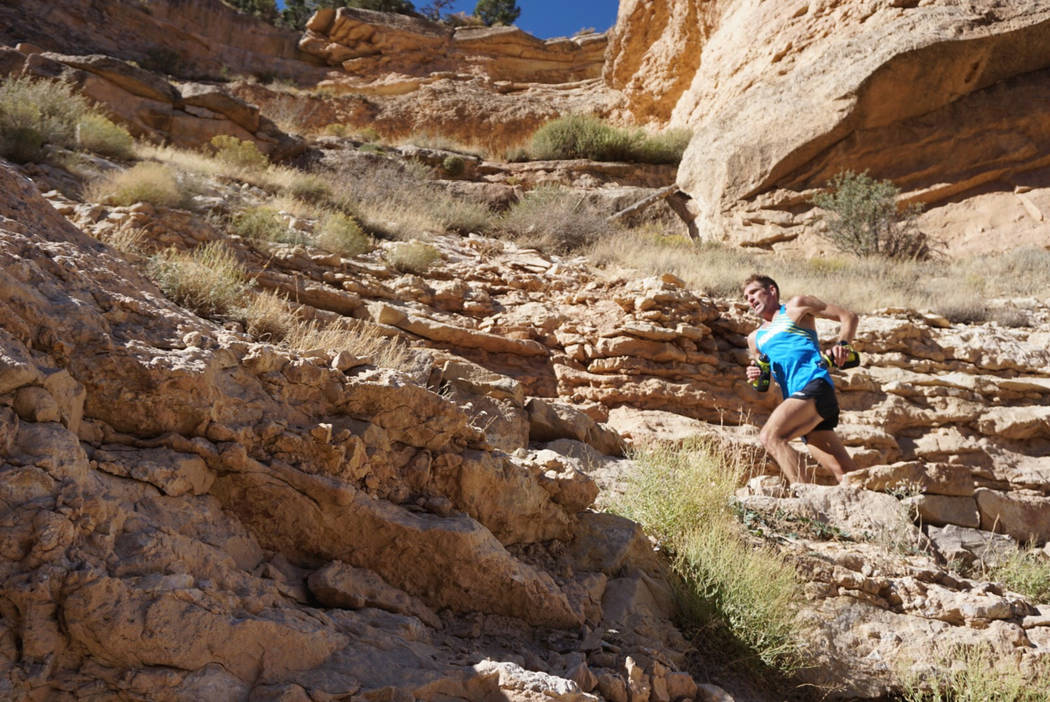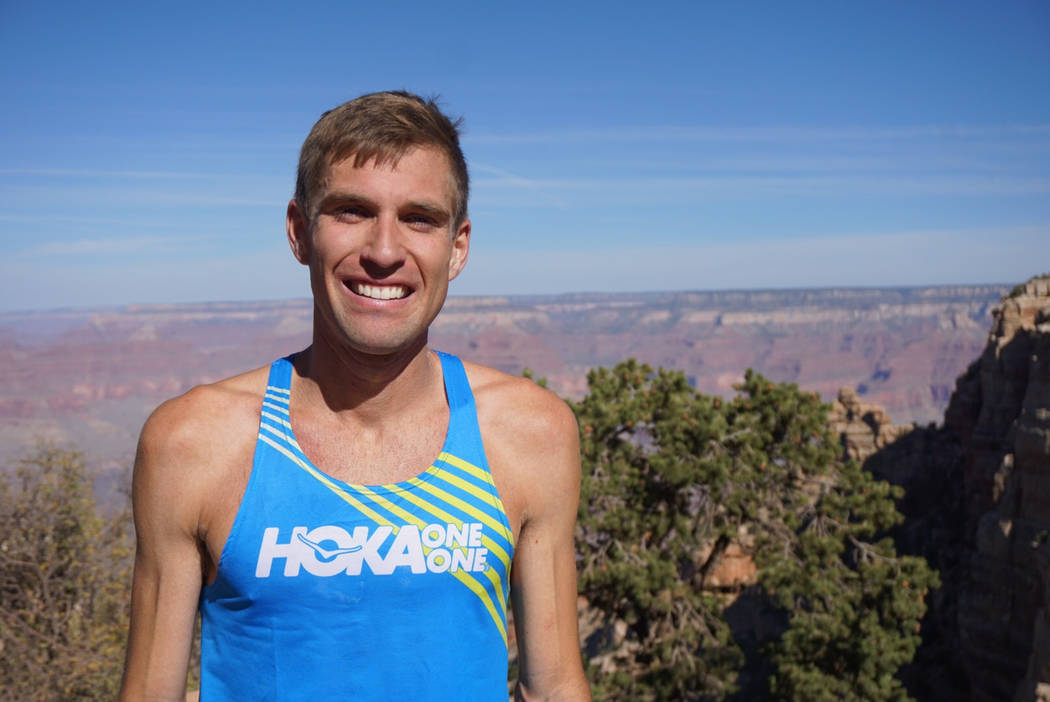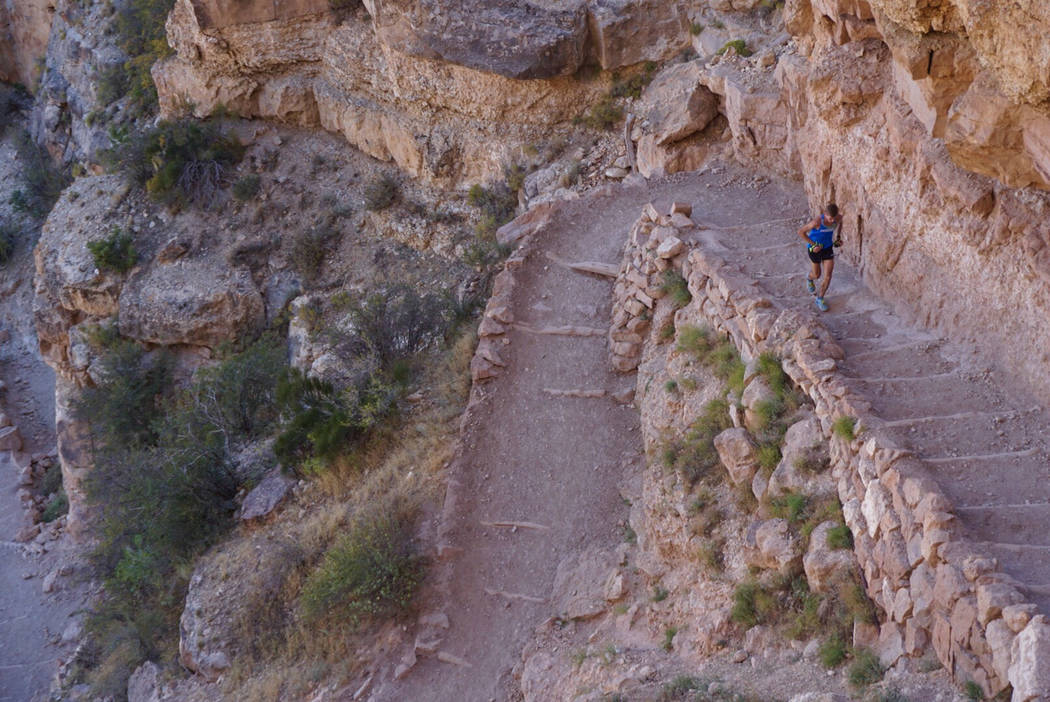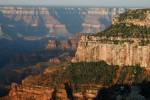Grand Canyon ‘rim-to-rim’ record latest incredible fitness feat
LOS ANGELES — Tim Freriks remembers being a kid and gazing up from the bottom of the Grand Canyon at the intimidating, steep walls looming thousands of feet overhead. He dreaded the long hike back to civilization and never imagined he would one day run up the trail snaking along those cliffs.
The distant memory came to mind this month after Freriks blazed from the North Rim to the South Rim at a blistering pace, crossing the 21-mile chasm to claim what is called the “fastest known time,” or FKT. There was no prize, only bragging rights to the unofficial record that has become a focus for athletes in all kinds of pursuits on trails, mountains and cliffs.
Endurance feats at what amounts to warp speed have captured the imagination of an increasing number of trail runners, climbers and mountaineers. Social and mainstream media now create attention for the once largely solitary figures and audiences for their accomplishments — and sponsorship dollars sometimes follow.
Freriks’ “rim to rim” run in under 2 hours and 40 minutes was one of three notable marks recorded this month alone.
A French winemaker took fewer than three days to cover 221 miles up Mount Whitney and across the John Muir Trail through Sequoia, Kings Canyon and Yosemite National Parks. Two California rock climbers broke a speed record climbing the sheer granite wall of El Capitan in Yosemite in under 2 hours 20 minutes — a climb that typically takes experienced climbers three days.
These increasingly popular quests have been driven in part by development of lighter gear, growth in long-distance trail running and the ability of people to follow athletes’ progress online, said Shawn Bearden, an avid trail runner and physiology professor at Idaho State University.
And some people are just bucking traditional contests and racing when they want.
“The FKT stuff is a cool dynamic,” said Freriks, who slept under the stars on the rim of the canyon the night before his Oct. 1 run. “It’s competitive, but the other side of the coin is it’s impromptu. You’re out there alone a lot of the time. There isn’t much publicity. It feels more pure.”
There’s a long history of adventurers setting out to conquer firsts. Sailors have long attempted ‘round the world journeys for record time. Swimmers have successfully tested the English Channel since 1875. But bagging Mount Everest “because it’s there,” as George Mallory famously said before his ill-fated 1924 quest, isn’t enough for some mountaineers now pushing the limits through thin air to reach the summit fastest.
“I think it’s a natural human tendency to keep pushing back the human boundaries of what’s perceived to be possible — like trying to set a world record,” said Peter Bakwin, a Colorado trail runner, who created a website to track fastest times.
Treks and climbs that once took months, weeks and days are now being knocked off in weeks, days and mere hours.
As keeper of the unofficial record, Bakwin has also found himself as reluctant arbiter of whether a claim is legit. What was once self-reported on the honor system can now be backed with global positioning system data, digital photos and social media posts.
A woman’s claim to the fastest time on the Appalachian Trail last year was widely questioned by other hikers and remains in dispute.
Even well-accepted marks are often fleeting.
Bakwin was the first known to run the Muir Trail in under four days — a trek along the most dramatic and scenic sections of the Sierra Nevada that takes a typical backpacker two to three weeks.
Although he was running around the clock to cover about 50 miles daily and sleeping short periods under a space blanket, Bakwin said he took time to smell the flowers. He remembered being tired and sore one night cresting a mountain pass under a full moon.
“It was magical,” he said. “It’s hard to explain the attraction of pushing your limits of endurance in nature. Some people get it and some people think it’s totally crazy.”
His best time from 2003 didn’t last a year and it’s been chipped away at ever since. No one broke the three-day barrier until Francois D’haene, one of the world’s top trail runners, shattered the previous best time Oct. 17 by about 12 hours, finishing in less than 2 days and 20 hours.
“I feel like I’ve had a great adventure,” D’haene remarked afterward. “Been lost in the middle of nowhere in stunning landscapes.”
D’haene had plenty of support from his sponsor Salomon, including a team of pacers who took turns carrying food and water and running with him. He only rested six hours over three days.
Four days after D’haene reached the end of the trail, climbers Brad Gobright and Jim Reynolds on the other side of Yosemite Valley broke the speed record set on the Nose route of El Cap.
They scaled the 2,900-foot vertical granite wall in 2 hours and 19 minutes, trimming four minutes from the mark set five years earlier by Hans Florine and Alex Honnold.
They took greater risks in going light to chase the record, bringing little gear to protect against a fall, not carrying water and climbing simultaneously near the top.
Florine, who has held that record eight times since he and another partner finished it in just over eight hours in 1990, was one of the first to congratulate them.
“It’s like a marathon time,” he said. “People don’t think about breaking the marathon time by more than 30 seconds. Four minutes off our time is awesome.”
Florine said his voicemail was full of messages asking if he’d try again, but at 53 he said feels too old. He gave Honnold his blessing to go for it with a new partner in the spring.
Freriks, 26, the same age as Florine when he set his first record on the Nose — foresees his record being broken and trying to reclaim it.
The day after he covered the grueling 10,550 feet of elevation change on the Kaibab Trail, he was “back to the same old grind” at the Flagstaff hospital where he works 12-hour shifts as a nurse three days a week.
He was exhausted by Thursday that week. But on Saturday, he ran and won the 55-kilometer Flagstaff Sky Race. This time, though, he didn’t record an FKT — he set the official course record.
































